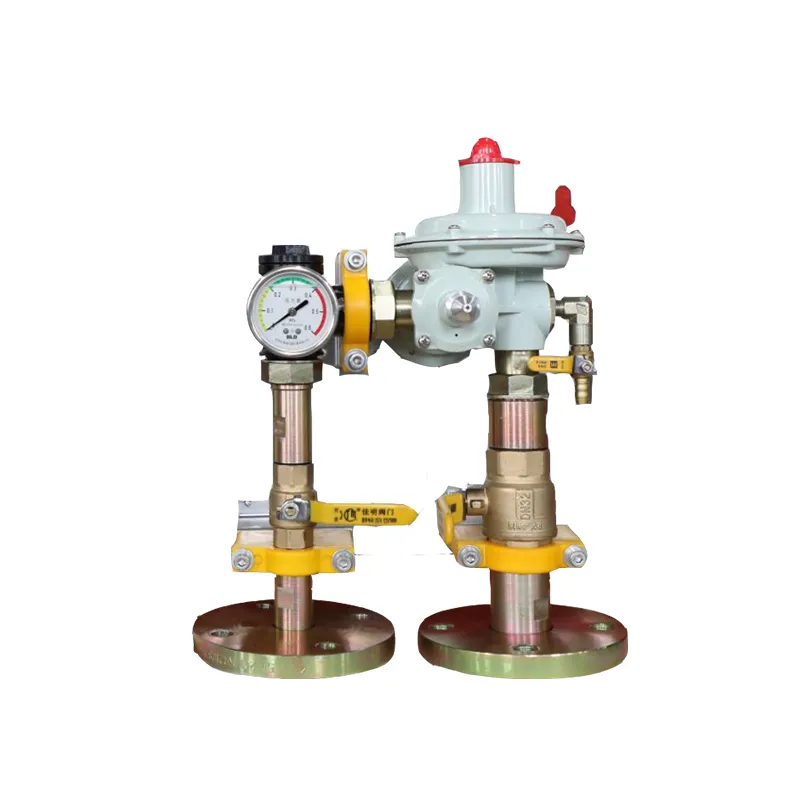
Oct . 13, 2024 12:57
Back to list
Pneumatic Control Valve Innovations for Enhanced Fluid Management and Automation Efficiency
The Importance of Pneumatic Control Valves in Industrial Applications
Pneumatic control valves are essential components in various industrial applications, serving as key elements in fluid control systems. These valves regulate the flow of air or gas through pneumatic systems, ensuring that the right amount of pressure and volume is maintained for efficient operation. Understanding the importance of pneumatic control valves can provide insights into their functionality, types, applications, and the benefits they offer in automated processes.
Functionality of Pneumatic Control Valves
Pneumatic control valves operate based on principles of fluid dynamics and pressure differential. They are typically controlled by a pneumatic actuator, which converts compressed air into mechanical motion. This actuator allows the valve to open, close, or modulate flow based on the control signals received from a centralized control system. By managing the flow of air or gas, pneumatic control valves help regulate pressure, speed, and direction in various processes.
Types of Pneumatic Control Valves
There are several types of pneumatic control valves, each serving specific functions based on the application requirements
1. On/Off Valves These valves provide a simple mechanism to either allow or block the flow of air or gas. They are commonly used in applications where the immediate opening or closing of systems is required.
2. Regulating Valves These valves maintain a constant pressure or flow rate despite changes in downstream conditions. They are essential in processes where precise control of fluid flow is necessary.
3. Directional Control Valves These valves control the direction of airflow in a system, enabling operators to change the path of the fluid being transported. This type is crucial in applications involving actuated cylinders or rotary actuators.
4. Flow Control Valves These valves are used to regulate the flow rate of pneumatic systems, allowing for fine-tuning of operational speeds and pressures.
Applications of Pneumatic Control Valves
Pneumatic control valves are utilized across numerous industries, enhancing efficiency and effectiveness in various applications
pneumatic control valve

- Manufacturing In automated production lines, pneumatic control valves manage the operation of pneumatic cylinders that perform tasks like lifting, moving, or pressing components in assembly processes
.- Food and Beverage Pneumatic systems are widely used in food processing plants for controlling the flow of ingredients and managing packaging operations. Sanitary pneumatic control valves are designed to meet stringent hygiene standards.
- Automotive In the automotive industry, pneumatic systems control various functions, such as tire inflation systems, paint spraying processes, and assembly line operations.
- Construction Pneumatic control valves are integral to heavy machinery, controlling tools and equipment that require compressed air, which enhances operational efficiency.
Benefits of Pneumatic Control Valves
The integration of pneumatic control valves into industrial systems offers several advantages
- Efficiency By enabling precise control over pressure and flow rates, these valves enhance the overall efficiency of pneumatic systems, reducing energy consumption and costs.
- Reliability Pneumatic systems are known for their reliability and minimal maintenance requirements, contributing to increased uptime in manufacturing processes.
- Safety Pneumatic control valves are designed to fail-safe, ensuring that in the event of a power outage or malfunction, the system defaults to a safe state, preventing accidents and injuries.
- Flexibility These valves can easily be integrated into existing systems, allowing for scalability and adaptability as operational needs evolve.
Conclusion
In conclusion, pneumatic control valves are vital components that facilitate the effective management of air and gas flow in various industrial applications. Through their ability to regulate, control, and direct the movement of fluids, these valves contribute significantly to the efficiency, safety, and reliability of pneumatic systems. As industries continue to advance towards automation and increased productivity, the role of pneumatic control valves will only become more critical, driving innovation and enhancing operational capabilities. Understanding their functionality and applications can help industries make informed decisions that optimize their operations and maintain competitive advantage in the ever-evolving industrial landscape.
Latest news
-
Safety Valve Spring-Loaded Design Overpressure ProtectionNewsJul.25,2025
-
Precision Voltage Regulator AC5 Accuracy Grade PerformanceNewsJul.25,2025
-
Natural Gas Pressure Regulating Skid Industrial Pipeline ApplicationsNewsJul.25,2025
-
Natural Gas Filter Stainless Steel Mesh Element DesignNewsJul.25,2025
-
Gas Pressure Regulator Valve Direct-Acting Spring-Loaded DesignNewsJul.25,2025
-
Decompression Equipment Multi-Stage Heat Exchange System DesignNewsJul.25,2025

